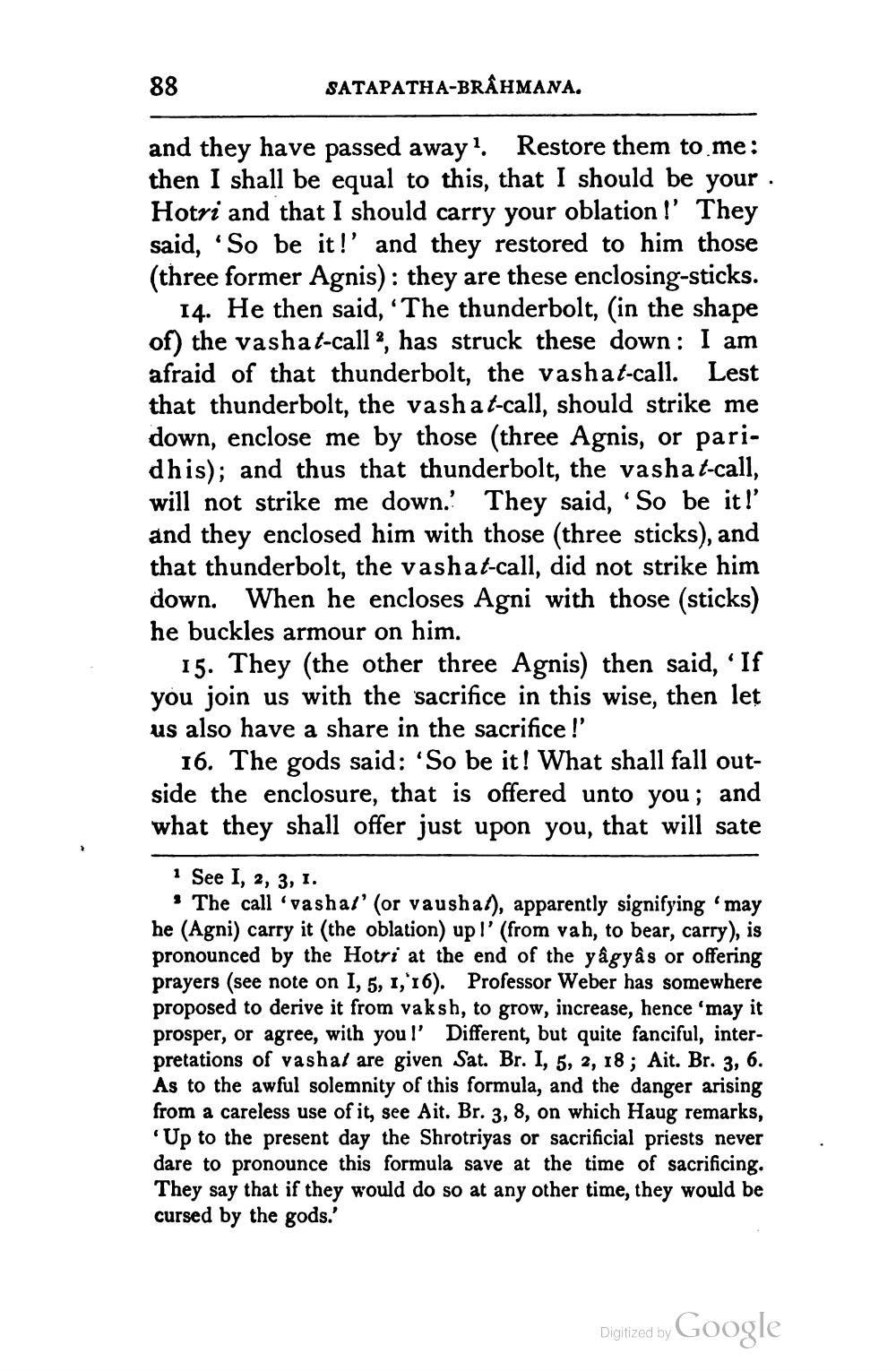________________
88
and they have passed away1. Restore them to me: then I shall be equal to this, that I should be your . Hotri and that I should carry your oblation!' They said, 'So be it!' and they restored to him those (three former Agnis): they are these enclosing-sticks.
14. He then said, 'The thunderbolt, (in the shape of) the vashat-call, has struck these down: I am afraid of that thunderbolt, the vashat-call. Lest that thunderbolt, the vashat-call, should strike me down, enclose me by those (three Agnis, or paridhis); and thus that thunderbolt, the vashat-call, will not strike me down. They said, 'So be it!' and they enclosed him with those (three sticks), and that thunderbolt, the vashat-call, did not strike him down. When he encloses Agni with those (sticks) he buckles armour on him.
SATAPATHA-BRAHMANA.
15. They (the other three Agnis) then said, 'If you join us with the sacrifice in this wise, then let us also have a share in the sacrifice!'
16. The gods said: 'So be it! What shall fall outside the enclosure, that is offered unto you; and what they shall offer just upon you, that will sate
1 See I, 2, 3, I.
The call 'vashat' (or vausha), apparently signifying 'may he (Agni) carry it (the oblation) up!' (from vah, to bear, carry), is pronounced by the Hotri at the end of the yâgyâs or offering prayers (see note on I, 5, 1,'16). Professor Weber has somewhere proposed to derive it from vaksh, to grow, increase, hence 'may it prosper, or agree, with you!' Different, but quite fanciful, interpretations of vashat are given Sat. Br. I, 5, 2, 18; Ait. Br. 3, 6. As to the awful solemnity of this formula, and the danger arising from a careless use of it, see Ait. Br. 3, 8, on which Haug remarks, 'Up to the present day the Shrotriyas or sacrificial priests never dare to pronounce this formula save at the time of sacrificing. They say that if they would do so at any other time, they would be cursed by the gods.'
Digitized by
Google




